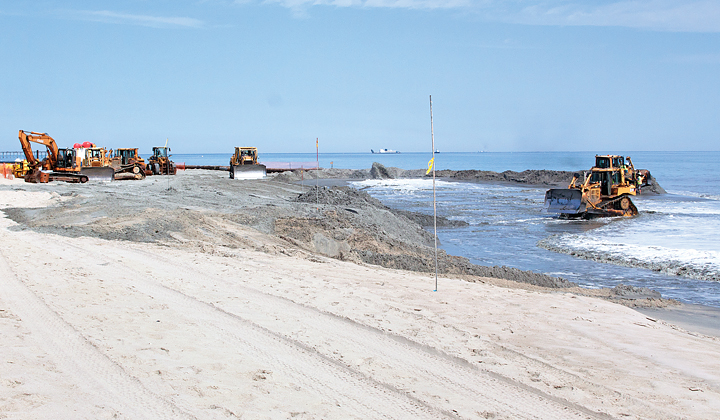After a two-day conference this week in Wrightsville Beach, several coastal advocates said they were optimistic about a series of issues, including finding state funding for the beach sand replacement project that is expected to run out of federal funding within the next few years.
During the Nov. 14 panel on options for coastal preservation at the annual North Carolina Beach, Inlet & Waterway Association meeting, members of the state legislature and local politicians discussed how the state can step in to help pay for beach sand once the federal funding dries up.
Kure Beach Mayor Emilie Swearingen said the panel showed that state Rep. Frank Iler, R-Brunswick County, was prepared to be a leader on the issue.
“He supports the coastal counties. He’s somebody we could go to and work with,” Swearingen said. “He had a lot of good suggestions on how we can go to other legislators in the state.”
The association’s executive director, Kathleen Riely, said the conference’s big turnout at the Blockade Runner Beach Resort helped attendees discuss several ideas on beach renourishment and other issues.
“I’m optimistic,” Riely said on beach sand funding. “The panel identified many sources of funding. We just have to figure out how to move forward on it.”
One of those sources could be an additional sales tax, which Riely said would have to be “divided proportionally and fairly.”
In another session, N.C. Coastal Federation scientist Tracy Skrabal said many estuarine “living shoreline” protection structures proved effective in the wake of Hurricane Matthew, which pummeled parts of the state in October.
“We didn’t hear about any adverse effects of the living shorelines that we worked on,” Skrabal said during the Tuesday session.
A living shoreline can include a range of structures, from something as simple as marshes to more complicated structures, like wooden biologs, to vertical and stone sills.
“Coastal marshes can be very effective at dissipating wave energy,” Skrabal said. “And they’re free.”
The North Carolina Beach, Inlet & Waterway Association represents a variety of coastal organizations, including municipalities, engineering firms, energy companies and dredging services, Riely said.
Email [email protected]




